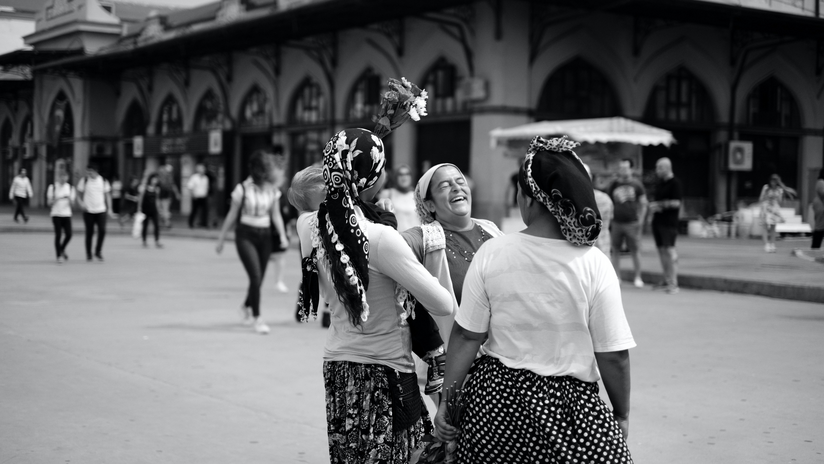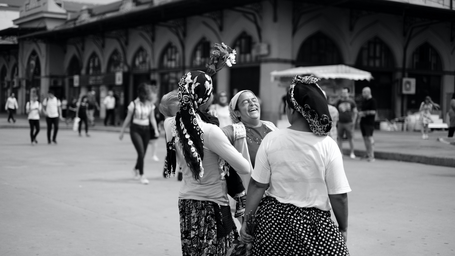CONTENT WARNING: Racism
Since the Black Lives Matter movement’s rise to international prominence and the 45th President’s own comments highlighted the United States’ prejudices towards African Americans, Europeans were shocked and disgusted at how minority communities were treated in the “land of the free” this far into the 21st Century. My British family, equally disgusted, strongly objected to this relentless discrimination and proclaimed themselves thankful that our country “just wasn’t like that” towards ethnic minorities anymore.
The bitter irony: we’re arguably even worse.
Europe seems to conveniently sweep its own prejudices under the rug. Without even mentioning the horrors of imperialism or the travesty of the holocaust, there is one ethnic minority to which every European nation owes an apology: the Romani people.
I hail from a small, rural town in northwestern England. Our community was as white as the salt from the mines it was built upon, with all the blind ignorance to the outside world to go with it. Like most of the town, my personal experiences with Romani people and communities are few and far between. We were parallel cultures. Our parents and grandparents told us not to mix with “their kind,” as their own parents and grandparents had told them. Yet my experiences of witnessing Romani discrimination are almost uncountable.
Romani people are nomadic, meaning they travel in communities instead of settling in one fixed place. This lifestyle is what inspired the nickname “travelers.” Typically, the British Roma live in caravans or motorhomes, often parked in fields, parks, or other camping sites.
When I was sixteen, the local park dug up the land that met the main road, creating a ditch. They then piled the dirt up behind the trench to create a sort of soil-based wall. ‘Why did the council do this?’ you might ask. As my father explained it, “they can’t get their caravans over it.”
The same year, news reached the council that one of the local Romani people had sadly passed away, and a funeral would occur. Every store, restaurant, and business shut its doors on the funeral day in fear the mourners may wreak havoc on the town. Doors locked, windows boarded up, security cameras checked, every business owner lived in fear of the stereotype they had been fed since their youth.
What was perhaps most shocking to me was the casual use of slurs to describe this community. I did not even learn the word ‘Romani’ until I was fourteen years old. Even then, this was through learning about the holocaust, a time when hundreds of thousands of Roma and Sinti people were brutally murdered by one of the world’s most racist regimes. This was the only time the community’s oppression was ever even mentioned to us in school, and only in passing. Still, Romani people are more commonly referred to as ‘g*psies.’
The word ‘g*psy’ originates in the 11th Century, when white Europeans mistook them for Egyptians. Over time, this racial slur has become associated with deception, robbery, and a plethora of other Romani stereotypes. In America, the word has become synonymous with free-spiritedness, despite very few people fully understanding the background of this offensive term.
But these prejudices are nothing new. Recorded discrimination against Romani people in Europe dates back to the early 13th Century. Byzantine records described the ethnic minority as “wizards… who are inspired satanically and prepared to predict the unknown.” Prominent figures in the Holy Roman Empire – modern-day Germany – gathered at the famed Diet of Augsburg in 1545. These high-ranking noblemen stated that “whosoever kills a (Romani) will be guilty of no murder.” In 1749, Ferdinand VI of Spain announced “Gran Redada,” a plan to exterminate all Roma people living in Spain. Less than 30 years later, Maria Theresa of Austria issued an edict forbidding marriages between Romani. During the Second World War, it is estimated that between 220,000 and 500,000 Romani Europeans died at the hands of the Nazi regime.
And unfortunately, as time has passed, prejudice towards the Romani has not diminished. Antiziganism – discrimination towards Romani people – is considered Europe’s last socially acceptable form of racism. In 2014, Pew Research Centre conducted a study in seven European countries to discover what percentage of the population had an unfavorable opinion towards Romani people. Shockingly, 85% of Italians, 66% of French people, and 53% of Greeks held negative attitudes towards Roma. The United Kingdom and Poland lay in the middle of the graph with 50% and 49%, respectively. Even at the lower end of the range, 42% of Germans and 41% of Spaniards also held this view.
Evidence shows how this hate can have dire consequences for the oppressed group. In many parts of Eastern Europe, 50-80% of human trafficking victims are Romani. In Nógrád County, Hungary, the European Roma Rights Care (ERRC) discovered that 80% of children in state care are Romani, despite Roma only making up about 20% of the population. Meanwhile, the mythical stereotype of “G*psy Child Snatchers” has damaged Romani families. It has not been uncommon for police to seize blond-haired, blue-eyed Roma children over fears of kidnapping, requiring the parents to take a DNA test and only further proving that the child is actually theirs. This myth has only been egged on by the press, with British newspaper Daily Mirror publishing headlines such as “Abduction Panic Moves Closer: Second Blonde Girl Found Living with G*psies.”
I am fully aware that if my family and friends find this article, I may lose many people I once was close with. However, that is a risk I am more than willing to take to shed light on the vile hatred of Romani people that has plagued Europe for centuries. Since leaving England, I have worked to overcome my internalized racism towards the Romani people and educated myself on combatting this discrimination using unbiased sources. Although I am changing, I will always hold myself accountable for carrying the hatred instilled in me by my surroundings. I am begging any other European reading this to do the same.
Useful Resources:
Politics of historical justice and combatting antiziganism – RomArchive
Roma persecution – Antiziganism – intensifies in Europe – Amnesty International USA (amnestyusa.org)
The Romani Gypsies by Yaron Matras





